Coordinated anti-Azerbaijani campaign in Russia A criminal case over “Long live Azerbaijan!” slogan sparks controversy
On November 16, the Investigative Committee of Russia announced that "a report on the investigation of possible illegal actions in one of the capital's educational institutions will be submitted to the central office of the Investigative Committee of Russia."
The statement elaborates: "A video circulating on social media shows young people in one of Moscow's educational institutions allegedly chanting unlawful slogans while holding the flag of a foreign country. To ascertain all the circumstances of the incident, as well as the authenticity of the video posted online and the statements made, the investigative bodies of the Moscow Main Investigative Directorate of the Investigative Committee of Russia have initiated a criminal case under Article 205.2 of the Criminal Code of the Russian Federation (public calls for terrorist activities). The necessary examinations have been commissioned as part of the criminal case.
The Chairman of the Investigative Committee of Russia, Alexander Ivanovich Bastrykin, has instructed the head of the Moscow Main Investigative Directorate, Andrei Alexandrovich Strizhov, to provide a report on the progress of the investigation, the circumstances established, and the results of the expert examinations conducted."
There is indeed something strange in the message from the Investigative Committee of Russia. It seems to contain an obvious contradiction. At the beginning, it is clearly stated that "young people in one of Moscow's educational institutions allegedly chanting unlawful slogans." But immediately afterwards, it is mentioned that " the Moscow Main Investigative Directorate of the Investigative Committee of Russia have initiated a criminal case under Article 205.2 of the Criminal Code of the Russian Federation (public calls for terrorist activities)." This seems odd: without verifying the facts, carefully reviewing what is happening in the video, and most importantly, without translating the slogans shouted by the students into Russian, a "sign of a crime" has already been established, and a criminal case has been initiated.
One might be tempted to exclaim, "What a commendable speed! Praise to the Russian investigative bodies!" But in this case, it is difficult to applaud the efficiency of Alexander Ivanovich's subordinates, as there is a clear rush and an attempt to stir up yet another anti-Azerbaijani campaign in Russia.
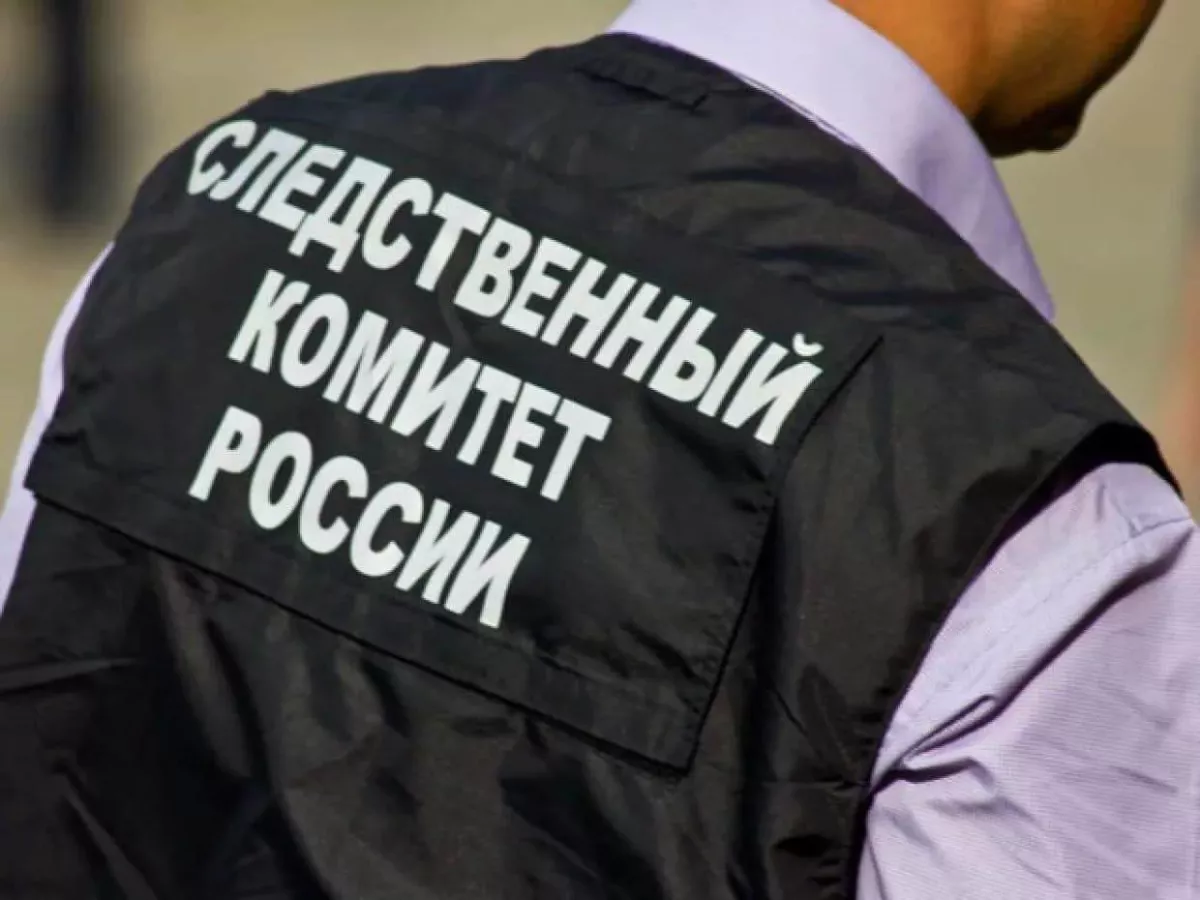
Yes, this is indeed the same case that was recently covered by Caliber.Az. As we previously noted, the incident involved a provocation with false accusations against Azerbaijani students at the Moscow University of Finance and Law (MFUA), who were allegedly chanting extremist slogans. However, anyone with even a basic knowledge of Azerbaijani could easily verify, by viewing the video available online, that there are neither illegal actions nor extremist slogans in the footage.
In fact, what "extremism" can one find in the slogan "Yaşasın Azərbaycan!" ("Long live Azerbaijan!")? The only place where such a slogan might be considered controversial is Armenia, but Russia is not Armenia. Russia is home to hundreds of thousands of Azerbaijanis, and as has been emphasized at the highest levels, the two countries act as allies, friends, close partners, and neighbours. Yet, someone felt the need to "interpret" the innocent slogan as "calls for terrorist activities," twisting "Long live Azerbaijan!" into something like "kill the Russians," even going so far as to initiate a criminal case and spark an uncontrolled anti-Azerbaijani hysteria.
There is no doubt that we are dealing with a coordinated anti-Azerbaijani campaign, supported by social media manipulation and provocations in the media space. This raises legitimate questions about the reasons behind such an approach, especially considering Azerbaijan’s careful attention to interethnic issues. Today, we have decided to revisit this topic to take a closer look at the situation, shed light on its historical context, and attempt to understand the goals pursued by this approach.
Bridges and barriers
To understand the current situation, it is important to consider the context of the organization of Azerbaijani communities in Russia and the activity of Russian institutions in Azerbaijan. The organization "Rossotrudnichestvo," which also has a representation in Azerbaijan, was founded in 1925 under the name "All-Union Society for Cultural Relations with Foreign Countries" (VOKS). The primary task of VOKS, and later its successors, was the promotion of Soviet interests abroad. The first leader of VOKS was the proletarian writer Maxim Gorky. In 1958, based on VOKS, the organization "Union of Soviet Societies of Friendship and Cultural Relations with Foreign Countries" (SSOD) was created, with the last leader before 1992 being cosmonaut Valentina Tereshkova.
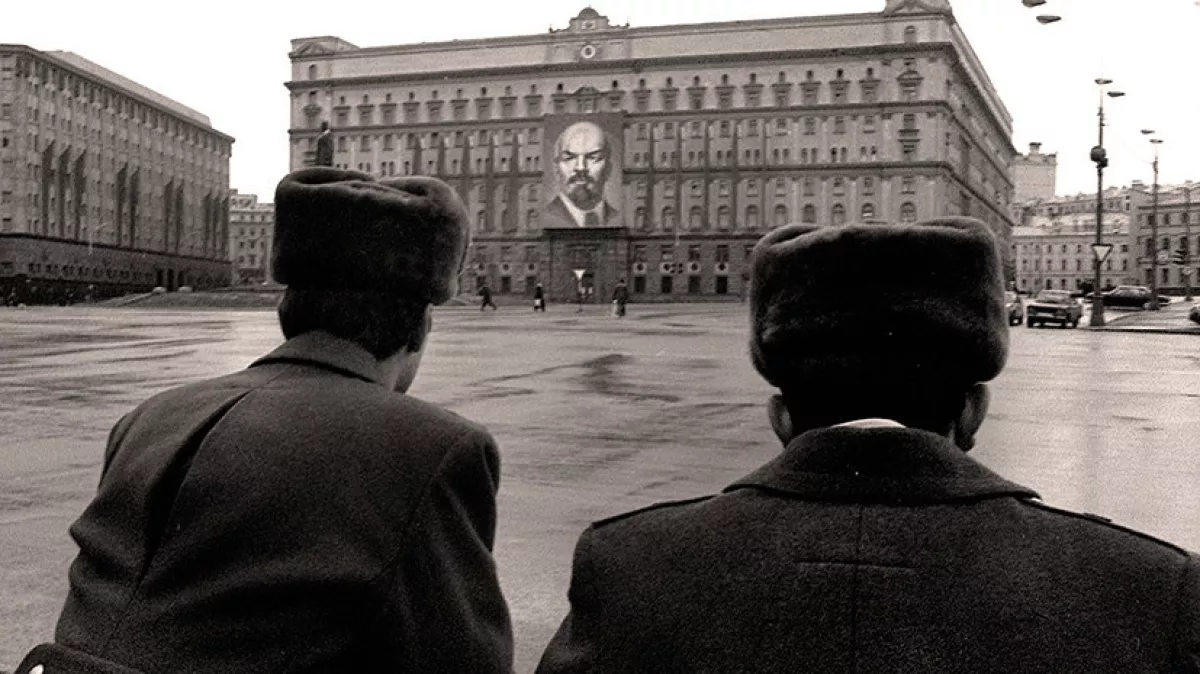
After 1992, the organization changed its name several times and currently operates under the title "Federal Agency for the Commonwealth of Independent States, Compatriots Living Abroad, and International Humanitarian Cooperation" ("Rossotrudnichestvo"). In the modern world, its primary task is to implement Russia's state policy in the field of international humanitarian cooperation and to help form an objective view of contemporary Russia abroad. However, the actual activities of the organization often differ from its stated goals and may be aimed at forming a pro-Russian network in the CIS countries, including Azerbaijan. Figuratively speaking, under the guise of a "humanitarian" organization, Russian intelligence services operate. This was also the case during the Soviet era, when Soviet correspondents and humanitarian organizations skillfully masked the activities of spies from the First Chief Directorate of the KGB (foreign intelligence). Despite Moscow's statements about revising the concept of "Rossotrudnichestvo" in the post-Soviet period, the organization's main function has remained unchanged, as evidenced by its active involvement in current events.
Modern stage of "Rossotrudnichestvo" in Azerbaijan
Today, "Rossotrudnichestvo" is headed by Yevgeny Aleksandrovich Primakov, the grandson of Yevgeny Maksimovich Primakov — the former head of the Russian Foreign Intelligence Service (SVR), Minister of Foreign Affairs, and Prime Minister of Russia, who was known for his anti-Azerbaijani stance, which was especially evident during the events of Black January in 1990.
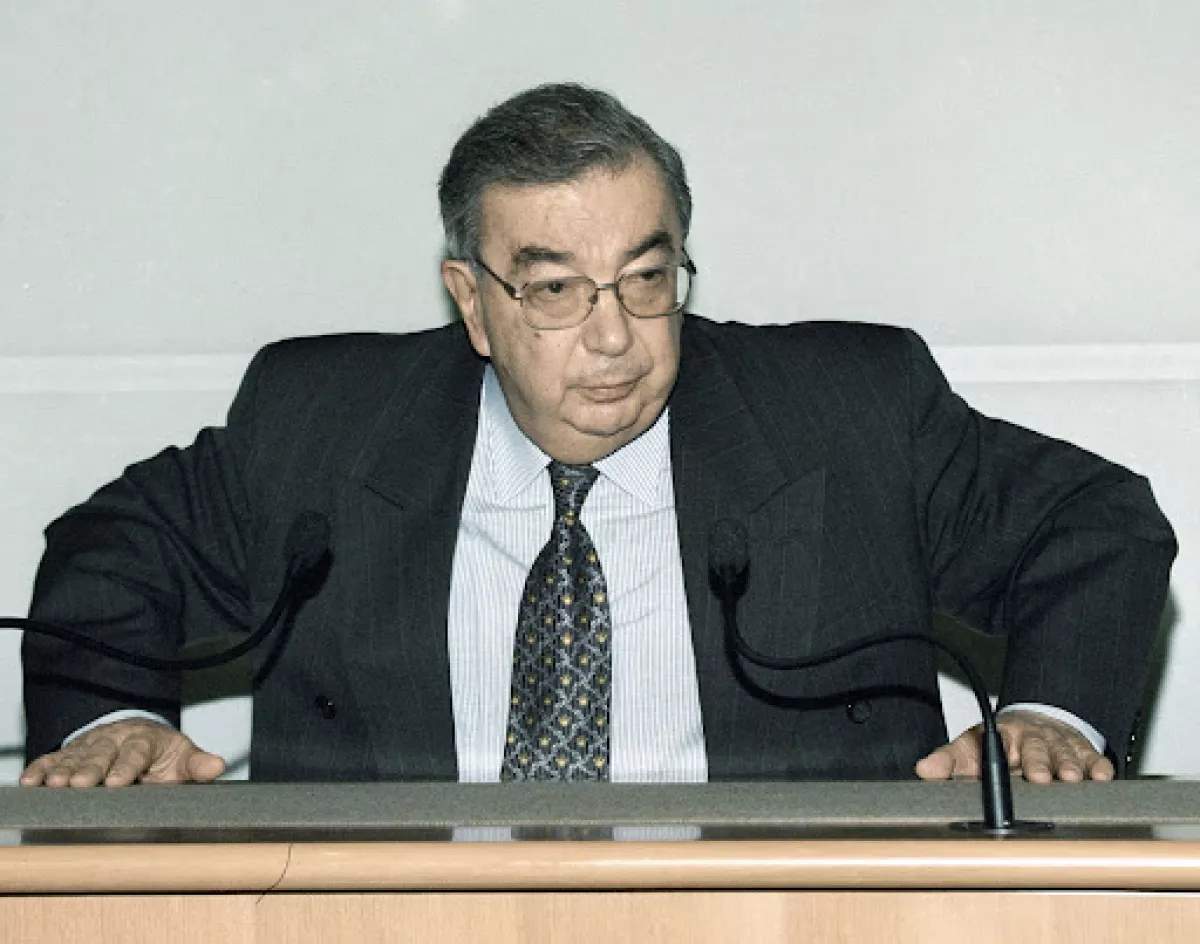
Primakov Jr., a journalist by profession, is known by his creative pseudonym "Yevgeny Sandro" and shares his grandfather’s views, which are reflected in his approach to the organization's activities in Azerbaijan. In addition, the Chairman of the Supervisory Board of "Rossotrudnichestvo" is Igor Chayka, the grandson of the former Prosecutor General, Yuri Chayka.
Injustice and inequality
When comparing officially operating Azerbaijani organizations in Russia with Russian structures in Azerbaijan, a significant inequality becomes evident. In 2001, with the support of national leader Heydar Aliyev, the All-Russian Azerbaijani Congress (VAK) was established. However, in 2017, its activities were halted by a decision of the Supreme Court of Russia following a lawsuit by the Russian Ministry of Justice. The formal reason was the organization's charter not complying with Russian legislation, and despite numerous attempts at re-registration, the activities of the All-Russian Azerbaijani diaspora organization have not been resumed. Thus, the only major organization uniting Azerbaijanis in Russia ceased to exist.
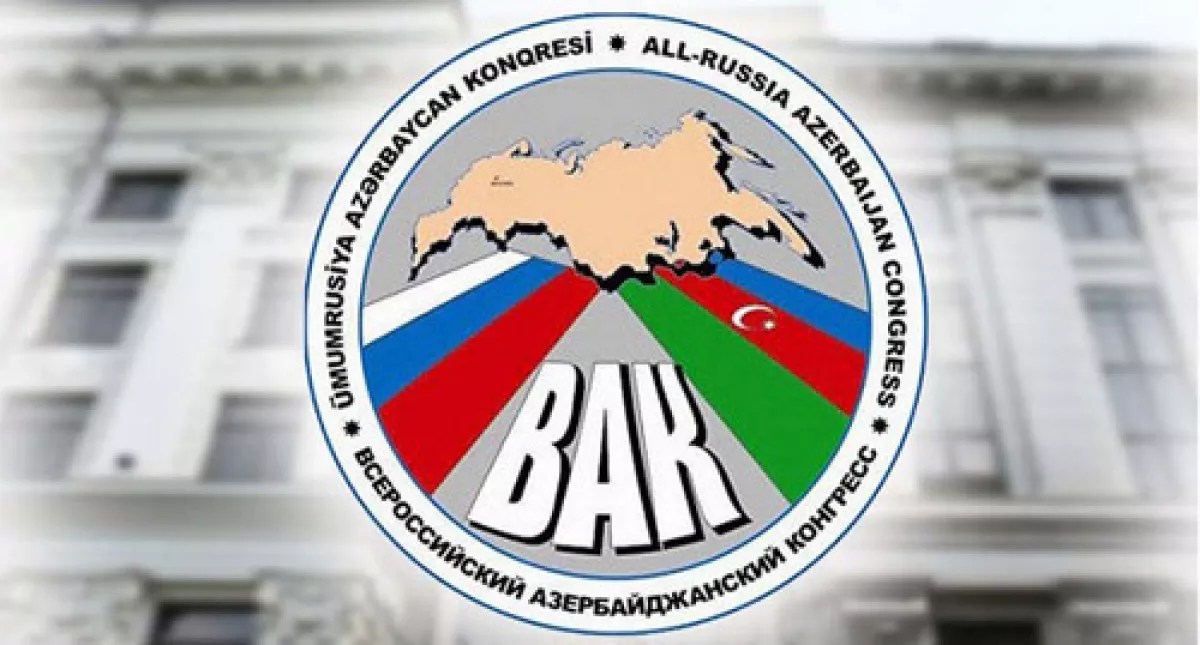
However, Russian organizations such as "Rossotrudnichestvo" and the Russian Community operate freely in Azerbaijan. Is this situation fair? The answer is obvious...
Anti-Azerbaijani campaign in Russia
The initiation of a criminal case against Azerbaijani students at MFUA is just one link in a chain of systematic provocations. Media outlets controlled by Russian authorities and intelligence agencies spread fake accusations, photographs, and videos, which only intensify the anti-Azerbaijani campaign. The Investigative Committee of Russia, led by Alexander Bastrykin, demonstrates a clear bias on this issue, raising questions about its real motives.
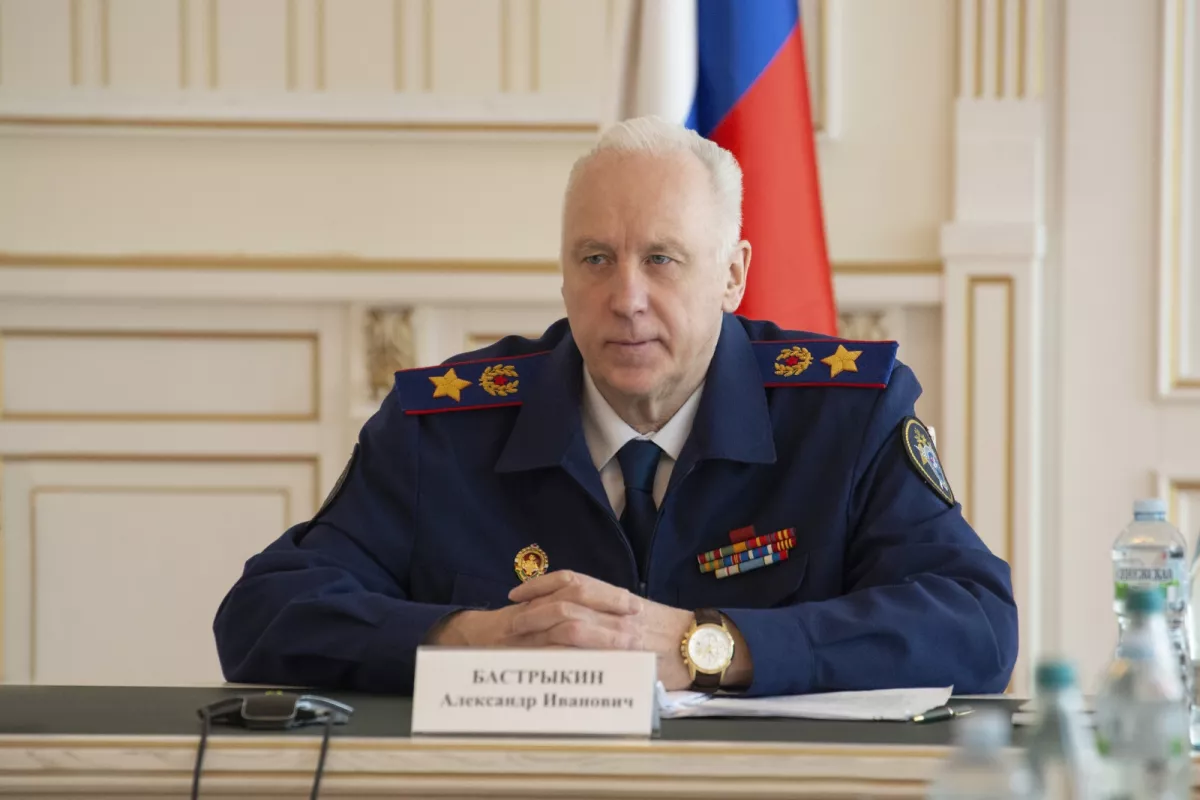
It seems that Russia intends to repeat in Azerbaijan what it once did in Kazakhstan and Uzbekistan — create a conflictual environment and instil the idea of alleged anti-Russian sentiments among Azerbaijanis. Such attempts lead to deteriorating relations between countries, and it is clear that these actions are backed by entities with close ties to the Armenian diaspora.
Conclusions
In conclusion, several key points can be highlighted.
First, the actions against Azerbaijani students are clearly coordinated. The involvement of state structures in such incidents under the guise of combating extremism raises serious doubts about their true intentions.
Second, the activities of "Rossotrudnichestvo" in Azerbaijan are focused less on humanitarian cooperation and more on fostering pro-Russian influence. This is evident when considering the historical role of the organization and its connections to Russian intelligence services. The stance of the leadership of "Rossotrudnichestvo" only amplifies these concerns, which requires special attention from Azerbaijani authorities.
Third important observation — The unequal conditions for Azerbaijani organizations in Russia and Russian organizations in Azerbaijan. The closure of the All-Russian Azerbaijani Congress (VAK) in 2017 serves as an example of discrimination against Azerbaijanis in Russia, while Russian structures continue to operate freely in Azerbaijan. In this context, it is also worth mentioning the activities of the Simonyan-led "Sputnik" in Azerbaijan. Recall how, in 2022, Azerbaijani news outlets were mass-blocked in Russia. During the 44-day war, many Russian media outlets took an overtly pro-Armenian stance. Yet, in Baku, no one thought to silence Russian media.
All of this reflects an unequal approach and a lack of reciprocity in the relations between the two countries.
Despite everything mentioned above, it is important to emphasize that these actions do not reflect the stance of all Russian society. There are people in Russia who are committed to peaceful coexistence and interethnic cooperation. However, the silence of Russian authorities and their obvious support for biased campaigns create a situation in which Azerbaijan must respond decisively and firmly.








